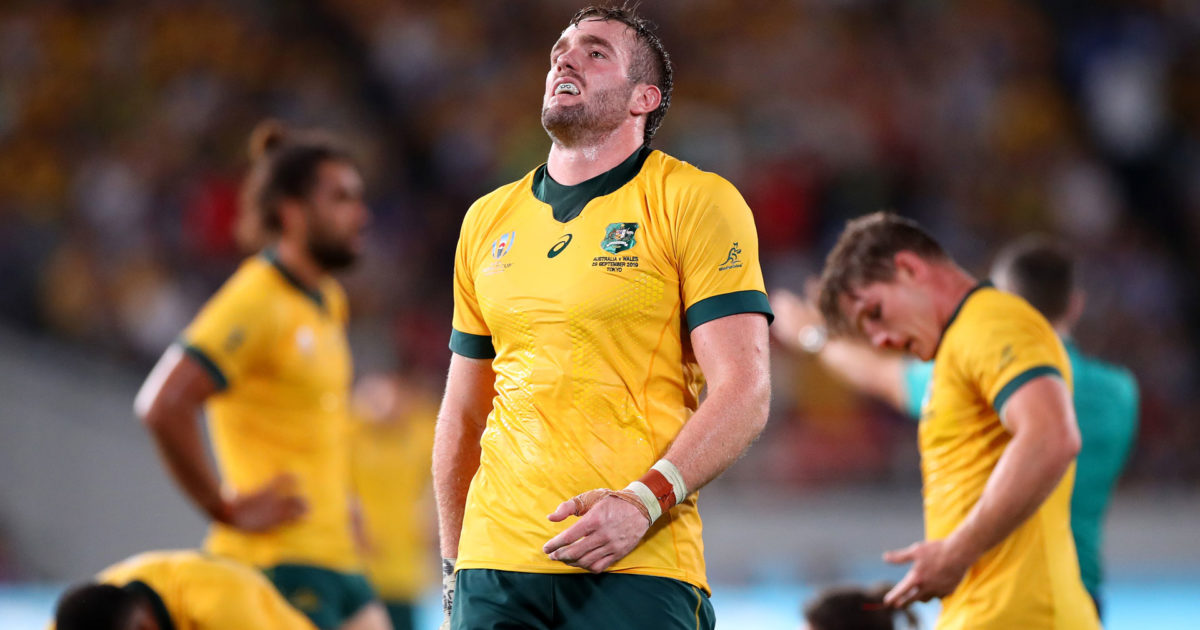Don't be surprised to see players walk out if Rugby Australia continues to struggle financially

Just two weeks after appointing Raelene Castle’s temporary replacement, Rugby Australia has had to release three of Queensland’s brightest up and coming talent who were all in the infancy of their careers.
23-year-old Wallaby Izack Rodda, along with 2019 Junior Wallabies Isaac Lucas and Harry Hockings, are all searching for a new club after refusing to accept a 60 percent pay cut and register for the Australian Government’s JobKeeper initiative.
After standing down the three players earlier in the week, the Queensland Reds, the Queensland Rugby Union and Rugby Australia terminated their contracts on Friday.
Rugby Australia Interim CEO Rob Clarke commented on the release of the three players late last week, who he claims are in the minority by disagreeing with the proposed terms.
“As everyone is aware the impacts of COVID-19 have been felt in every country, across every industry, and rugby is no exception,” Clarke said.
“189 professional rugby players in Australia accepted reduced pay for an interim period to enable the game to navigate the unprecedented situation.
“The three Queensland players elected not to accept these terms.”
https://www.instagram.com/p/CAeSh52g2re/
Even though Clarke later added that he hasn’t had any “indication” from the Rugby Union Players Association that more players are looking to move overseas, it only seems like a matter of when.
Manager of the three players, Anthony Picone, explained that the decision not to agree to terms was due to the dire financial state of the game.
Rugby Australia is yet to stabilise its future with a broadcast deal for this shortened season and beyond, just over a week after collecting financial aid from World Rugby to support them throughout the coronavirus crisis.
Taking a 60 percent pay cut would be tough to accept in any profession, regardless of the industry, especially when contracts may not be able to be honoured as Picone highlighted.
“This is their livelihood. It is only reasonable that talented players want to secure stable employment during these times,” Picone stated.
Rugby careers can’t last forever and players cannot be expected to continue acting as they will.
In the past we’ve seen players leave Australia’s shores for various reasons, as they make the most of the talent they have throughout their limited careers.
Samu Kerevi left Australia for Japan after last year’s Rugby World Cup at just 26-years-old when he was the captain of the Reds, also under the management of Picone.
Liam Gill and Sean McMahon were other players who left a Wallabies jumper behind while in their prime to chase more preferable ambitions.
While Japan is being suggested as a potential destination for the ex-Reds players, should they, as well as other Australian players, consider Super Rugby Aotearoa?
Financial stability, competitive rugby and passionate fanbases should tempt some players to move to New Zealand, just as England Centre Joe Marchant did earlier this year.
The three players definitely have plenty of options to consider, with Clarke adding that their careers would not continue on Australian shores for now.
“If they wish to go overseas then that’s their decision, there’s no avenue open to them in Australia at this time.”
Players who are still representing one of the Australian Super Rugby franchises returned to training last week, as they prepare for a competition that is still very much up in the air.
The coronavirus has plagued this country for months now, but rival codes such as the AFL and NRL have spent weeks planning and preparing for their sports to return.
In fact, Rugby League is controversially set to return in just a matter of days, even managing to include the New Zealand Warriors while Rugby Australia can’t seem to organise a competition involving a handful of States.
Already we’ve seen average Australian Super Rugby crowd numbers drop significantly from what we saw last year, down a few thousand for home matches. A lack of action from Rugby Australia at this crucial period in the game’s livelihood could prove to be detrimental in the short-term.
Without the fans to drive the resurgence of rugby’s passion and the financial stability of the sport, why shouldn’t we be surprised if players opt out to do what’s best for them?
Playing for your country is something that many of us can only dream of, but when you’ve got a family to support and mortgages to pay, don’t be surprised to see players walk out if Rugby Australia continues to struggle financially.
























































